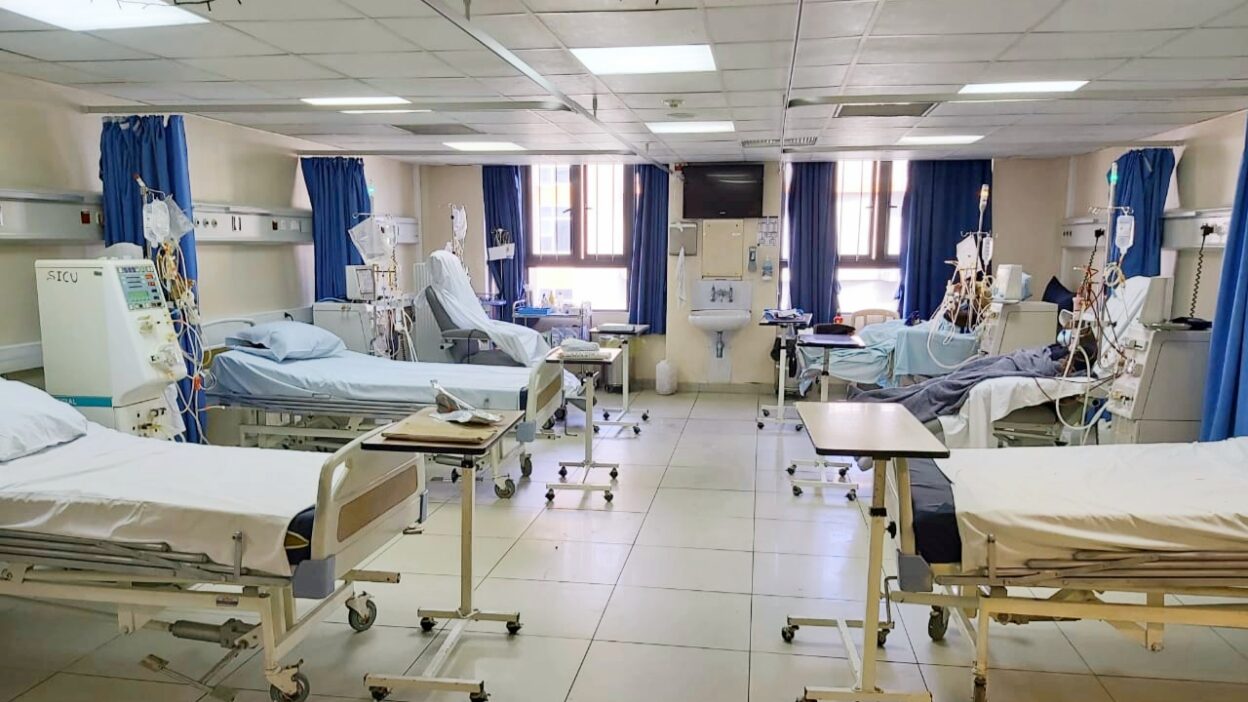Mauritius stands as a beacon of health progress in Africa, with notable achievements in universal health coverage (UHC), life expectancy, and disease control. The launch of activities for the Health Sector Strategic Plan (HSSP) 2025–2030, alongside a Leadership Orientation Workshop, underscores the nation’s commitment to advancing health and well-being. With a robust public health system serving 73% of the population at no cost and a UHC service coverage index of 66—well above the African regional average of 44—Mauritius is poised to build on its successes. However, challenges such as an aging population, rising non-communicable diseases (NCDs), infectious disease threats, and health system inefficiencies require innovative strategies to ensure a sustainable and resilient health sector. This article explores comprehensive approaches to enhance Mauritius’ health sector, drawing on global best practices, local achievements, and emerging opportunities.
Strengthening Primary Health Care (PHC) for Universal Health Coverage
Primary Health Care (PHC) is the cornerstone of UHC, providing accessible, affordable, and people-centered services across the life course. Mauritius has a vast network of 114 Community Health Centres, 19 Area Health Centres, and other facilities, ensuring most citizens live within five kilometers of a health point. To further strengthen PHC, the following strategies are proposed:
- Refine Service Packages: Align health services with population needs, emphasizing prevention, early diagnosis, and management of NCDs like diabetes and hypertension, which are prevalent in Mauritius. A refined package should include mental health services, given the 93,000 patients treated for mental health issues in 2020.
- Optimize Workforce Allocation: Conduct a comprehensive health workforce analysis to address staffing shortages and skill gaps. Revising staffing norms, as recommended by WHO experts, can ensure facilities are adequately resourced to deliver quality care.
- Enhance Quality Management: Institutionalize quality assurance systems to standardize care delivery. Regular audits and patient feedback mechanisms can improve service acceptability and equity, addressing gaps noted by Health Minister Dr. Kailesh Jagutpal.
Addressing the Aging Population’s Needs
Mauritius’ population is aging rapidly, with 18.7% aged 60 and above in 2021, projected to reach 36.5% by 2061. This demographic shift demands a health system tailored to older adults’ needs. The National Integrated Care for Older People (ICOPE) Strategic and Action Plan (2023–2026) is a step forward, but further actions are needed:
- Scale Up ICOPE Implementation: Expand screening programs beyond the pilot phase, targeting all older adults for early detection of physical and mental decline. Personalized care plans, as exemplified by senior citizens like Mr. Goundan, can enhance autonomy and quality of life.
- Integrate Social Care: Collaborate with organizations like the Senior Citizens Council to provide holistic care, addressing social isolation and mental health challenges such as dementia. Community-based programs can promote active aging through social and physical activities.
- Train Specialized Staff: Develop geriatric care training programs for health professionals to manage age-related conditions effectively. Partnerships with international institutions, such as the University of Bordeaux, can facilitate knowledge transfer.
Combating Non-Communicable Diseases (NCDs)
NCDs, including diabetes, hypertension, and cancer, pose a significant burden on Mauritius’ health system. The EU-funded Health Systems Strengthening for UHC project highlights the need for targeted interventions. Key strategies include:
- Prevention and Awareness: Expand public health campaigns to promote healthy lifestyles, building on the government’s efforts to sensitize communities. Programs like MUGA, which encourage physical activity, can be scaled to reach more citizens.
- Early Screening and Treatment: Integrate NCD screening into routine PHC visits, using digital tools to track patient data. The “One Patient, One Record” initiative by UNDP can streamline care coordination, reducing delays in diagnosis and treatment.
- Multisectoral Collaboration: Engage private sectors and civil society to support NCD prevention. Public-private partnerships (PPPs) can fund community-based programs, alleviating pressure on public facilities.
Enhancing Infectious Disease Preparedness
Mauritius’ success in reducing HIV transmission through harm reduction programs (from 92% in 2005 to under 2% today) demonstrates its capacity to tackle infectious diseases. However, global pandemics like COVID-19 highlight the need for robust preparedness. Recommendations include:
- Strengthen Surveillance Systems: Invest in real-time disease surveillance to detect and respond to outbreaks early. Digital health platforms can enhance data collection and analysis, informing rapid response strategies.
- Build Contingency Plans: Develop and regularly test emergency response plans, ensuring adequate resources for surge capacity. WHO’s support during the COVID-19 response can serve as a model for future pandemics.
- Vaccination and Community Engagement: Maintain high vaccination coverage and engage communities to combat vaccine hesitancy. Partnerships with UN agencies like UNFPA can educate vulnerable groups, such as out-of-school youth, on disease prevention.
Leveraging Digital Health and Innovation
Digital health is transforming healthcare delivery globally, and Mauritius is well-positioned to capitalize on this trend. The UNDP’s e-health initiatives, including the “One Patient, One Record” project, are promising steps. To maximize impact:
- Expand Digital Infrastructure: Deploy electronic health records (EHRs) across all facilities to improve care coordination and data-driven decision-making. Ensure interoperability between public and private systems.
- Promote Telemedicine: Introduce telemedicine services to reach remote areas and reduce hospital overcrowding. Pilot programs can target chronic disease management and mental health consultations.
- Foster Innovation: Encourage local startups to develop health tech solutions, such as mobile apps for health education or wearable devices for monitoring NCDs. Incentives like tax breaks can attract private investment.
Securing Sustainable Health Financing
A sustainable health system requires efficient resource allocation and innovative financing. Mauritius’ reliance on government-funded services (73% of healthcare usage) necessitates diversified funding sources:
- Explore PPPs: Develop frameworks for PPPs to integrate private and public health services, as suggested in the HSSP 2025–2030 planning. Private sector involvement can enhance service efficiency and reduce public expenditure.
- Access International Funding: Leverage partnerships with the EU, WHO, and other UN agencies to secure grants and technical assistance. The EU’s support for NCD assessments exemplifies the potential of such collaborations.
- Optimize Resource Use: Conduct regular health financing reviews to ensure equitable distribution of funds. Prioritize high-impact interventions, such as PHC and preventive care, to maximize returns on investment.
Promoting Mental Health and Well-Being
Mental health remains a critical yet stigmatized issue in Mauritius, with significant patient numbers reported in 2020. The decentralization of psychiatric services to regional hospitals is progress, but more is needed:
- Develop a National Mental Health Strategy: Align with WHO’s Comprehensive Mental Health Action Plan (2013–2030) to promote mental health across all ages. Include child and adolescent mental health services, given the 224 underage patients treated in 2020.
- Train Health Workers: Expand training programs to equip PHC staff with skills to identify and manage mental health conditions. Community health workers can play a key role in outreach and destigmatization.
- Community-Based Interventions: Partner with NGOs to provide psychosocial support and awareness campaigns. Initiatives like UN Road Safety Week’s community marches can be adapted to promote mental health advocacy.
Building Climate-Resilient Health Systems
As a Small Island Developing State (SIDS), Mauritius faces climate-related health risks, including extreme weather events and rising sea levels. The WHO Country Cooperation Strategy (2023–2026) emphasizes climate resilience:
- Integrate Climate Adaptation: Incorporate climate risk assessments into health planning, ensuring facilities are equipped to handle disasters. Green port development models can inspire climate-resilient health infrastructure.
- Promote Environmental Health: Address environmental determinants of health, such as plastic pollution, which impacts marine ecosystems and human health. UN initiatives to combat plastic pollution can be expanded to include health-focused campaigns.
- Renewable Energy in Healthcare: Transition health facilities to renewable energy sources, aligning with Mauritius’ goal of 35% renewable energy by 2025. Solar-powered clinics can reduce costs and enhance sustainability.
Fostering Multisectoral and Global Partnerships
The UN’s collaboration with Mauritius, involving 24 agencies under the UN Sustainable Development Cooperation Framework (2024–2028), highlights the power of partnerships. To sustain and expand these efforts:
- Engage Stakeholders: Involve civil society, private sectors, and communities in health policy development, as seen in the HSSP 2025–2030 consultations. Inclusive processes ensure policies reflect diverse needs.
- Strengthen UN Collaboration: Leverage WHO’s technical expertise and UNFPA’s youth-focused programs to address cross-cutting health issues. UNDP’s digital health initiatives can complement WHO’s system-strengthening efforts.
- Global Knowledge Exchange: Partner with international institutions to adopt best practices. Mauritius’ participation in the Western Indian Ocean Coastal Challenge (WIOCC) demonstrates its leadership in regional collaboration, which can extend to health innovation.
Mauritius’ health sector is at a pivotal moment, with the HSSP 2025–2030 poised to shape a resilient future. By strengthening PHC, addressing demographic and disease challenges, leveraging digital health, securing sustainable financing, and fostering partnerships, Mauritius can achieve its vision of a modern, patient-centered health system. These strategies not only align with SDG 3 (Good Health and Well-Being) but also contribute to economic productivity, social stability, and environmental sustainability. With continued commitment from the government, UN agencies, and stakeholders, Mauritius can remain a global model for health excellence, ensuring healthy lives and well-being for all its citizens.
References
- United Nations in Mauritius. (2025). Promoting healthy lives & well-being for a resilient Mauritius.
- WHO Regional Office for Africa. (2024). Strengthening Mauritius’ Primary Health Care approach.
- WHO. (2024). UHC-Partnership: Integrated health care for older people in Mauritius.
- European External Action Service. (2018). Strengthening Mauritius Health System.
- United Nations in Mauritius. (2021). Sustainable Development Goal 3: Good Health and Well-Being.






I always find myself coming back to your posts when I need inspiration. Excellent work!
I appreciate your enthusiasm! I’ll do my best to keep the content coming.
I’ve already bookmarked this post for future reference. Your work is invaluable!